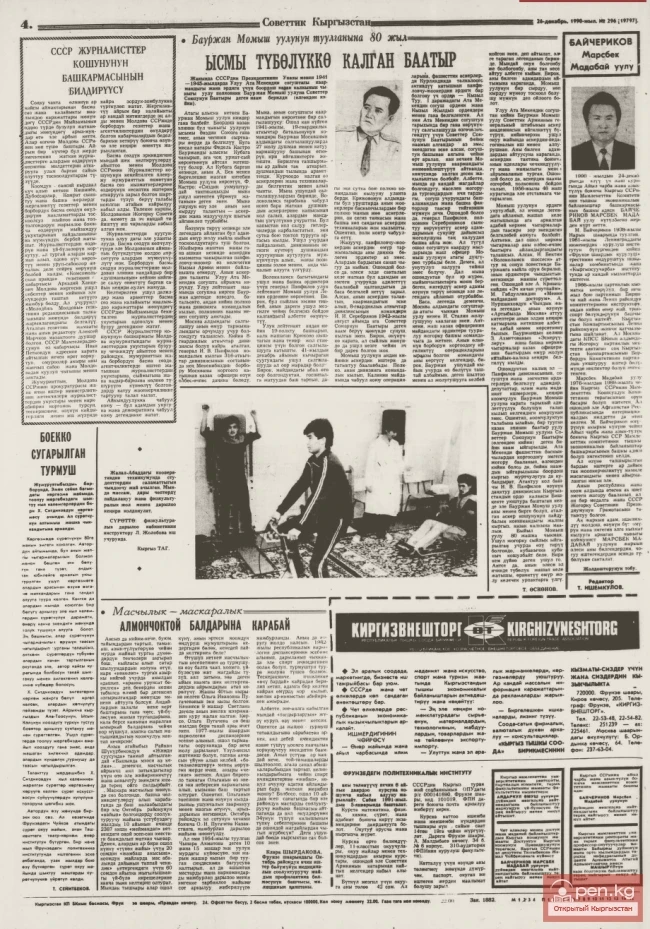Media of Kyrgyzstan during Perestroika (1985-1991)
In mid-1985, under the initiative of M. S. Gorbachev, the course for perestroika was proclaimed in the USSR. The ideas of perestroika were discussed at the April (1985) Plenary of the Central Committee of the Communist Party of the Soviet Union, then at the XXVII Congress of the Party and the XIX All-Union Party Conference. This was undoubtedly a positive step, the beginning of a new political course. New economic and political thinking began to be talked about everywhere. However, at that time, much was unclear: there was no clear program for the reforms being carried out, and there was no ultimate goal for the planned transformations. Enthusiasm and the desire to reform the socio-economic life for the better turned out to be insufficient. To solve the tasks set, a scientifically grounded strategy and well-calibrated tactics were required, but this was not done. The party began the restructuring of the national economy without solid theoretical and organizational preparation. All this had a negative impact on the work of the mass media throughout the country, including Kyrgyzstan. Moreover, the materials of the aforementioned party forums maintained an unwavering line on the centralization of party leadership over the mass media, the goal of which was the mandatory implementation of the directives of the CPSU.
Democratization and glasnost not only opened new topics for journalists but also created enormous difficulties for them. Never before had the one-party Soviet journalism faced the necessity of objectively reflecting the numerous problems born from the new political and economic thinking. The real life, with its achievements and contradictions, had to be reflected on the pages of newspapers and magazines, in television and radio programs, in all the diversity of various opinions and judgments.
Nevertheless, the proclamation of democratization and glasnost opened up opportunities for the mass media to analyze events and phenomena, raise serious problems, and propose solutions. The tasks of truthfully reflecting reality came to the forefront of the media's work. After many years of restrictions, the media began to speak out loudly. They became a powerful lever for the transformations that had begun, contributing to the development of the democratization of the masses, their psychological restructuring, and the activation of conscious actions aimed at breaking the administrative-command system. Glasnost became the most important lever for the media in the struggle for the democratization of society. As for journalists, the very fact of having the opportunity to reliably and comprehensively inform the public about the processes occurring in the country and the republic evoked in them a sense of freedom and internal liberation. This was largely facilitated by M. S. Gorbachev's statement at one of the meetings with the heads of mass media that, under the conditions of a one-party ruling system, the media should perform the role of an opposition organization. This allowed journalists to actively, and in some cases even excessively sharply, engage in the propaganda and agitation campaign for perestroika.
It should be noted that the widely advertised policy of glasnost, the course towards freedom of speech and democratization of all public life was received with great interest by the Soviet people. The central newspapers, especially "Economic Life," "Komsomolskaya Pravda," "Moscow Komsomolets," the magazine "Ogonyok," central television and radio, and in Kyrgyzstan - the newspapers "Komsomolets of Kyrgyzstan," "Leninchil Zhas," and the magazine "Literary Kyrgyzstan" laid the groundwork for preparing the masses for the upcoming transformations. On the pages of these newspapers and magazines, in some television and radio broadcasts from Moscow and the republic, journalists began to raise problematic questions concerning the imperfections of many socio-economic aspects of public life, as well as the malaise in the sphere of morality and ethics.
Here is what Zamira Sydykova, the deputy editor of "Komsomolets of Kyrgyzstan," later the organizer and editor of the first opposition newspaper in Kyrgyzstan "Respublika," wrote at that time: "As is known, for more than 50 years 'Komsomolets of Kyrgyzstan' was the organ of the Central Committee of the Komsomol of Kyrgyzstan. It is clear that its pages were filled with such headings as 'Moral Education,' 'Construction Brigade,' 'Komsomol and Me,' but one could not ignore the fact that it was precisely the youth that was characterized by a movement forward. This newspaper was the first to go beyond the unified party line; under its editorial board, the first round tables and interest clubs appeared, where radical thoughts about the future of the generation were discussed, what awaited it, and with what it would enter the new century. Doubts - that was what made them gather together, after which they realized that they were not alone. This did not please the party functionaries, who, without hesitation, intervened in the layout plan of the next issue, calling the chief editor to account. But they did not know how to behave - after all, it was already 'perestroika.'
Read also:
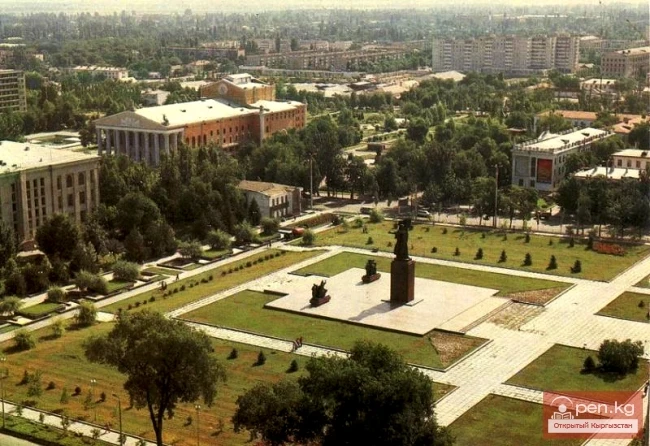
Kyrgyzstan in the Years of Perestroika
A Turn in Social and Political Life. By the mid-1980s, a deep crisis had emerged in all spheres of...
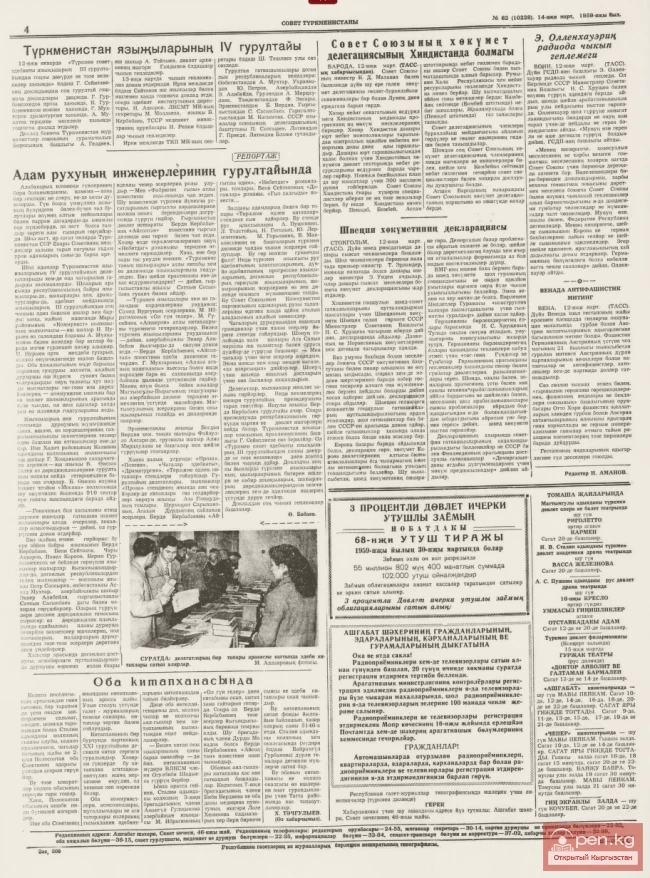
The Development of Printing in Kyrgyzstan in the Second Half of the 1920s.
At the beginning of 1925, together with the governing bodies of the Kyrgyz Autonomous Region, the...
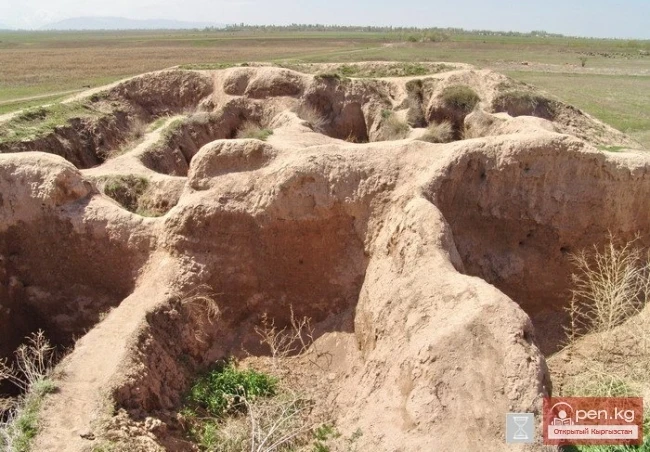
Union of Architects of Kyrgyzstan
In connection with the adoption in 1976 by the Supreme Soviet of the USSR of the Law on the...
Media of Kyrgyzstan in 1956-1985.
Curl error: Operation timed out after 120001 milliseconds with 0 bytes received...
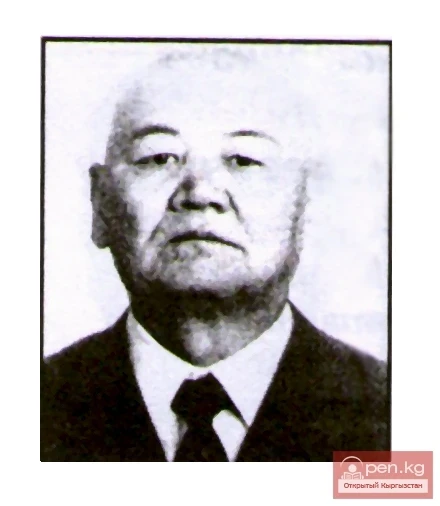
Alamanov Bayan (1915 - 1985)
Alamanov Bayan (1915 -1985), Doctor of Economic Sciences (1978)...

The History of Kyrgyz Journalism
Kyrgyz journalism has gone through a rather fruitful, yet at the same time, a thorny path from the...
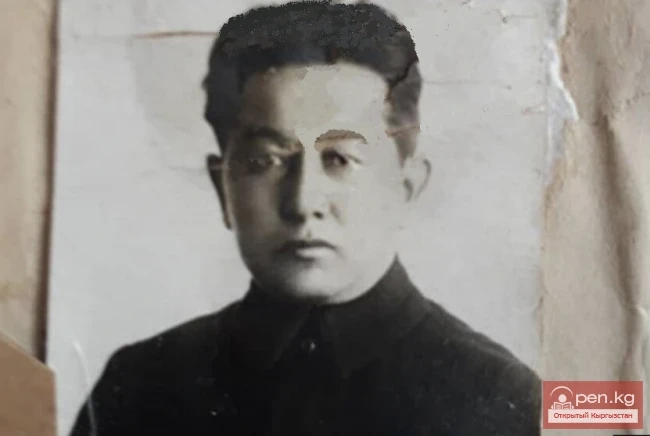
Arrest of O. Tyanaev
Victim of a Monstrous Accusation For his "right-opportunistic speech at the plenum of the...
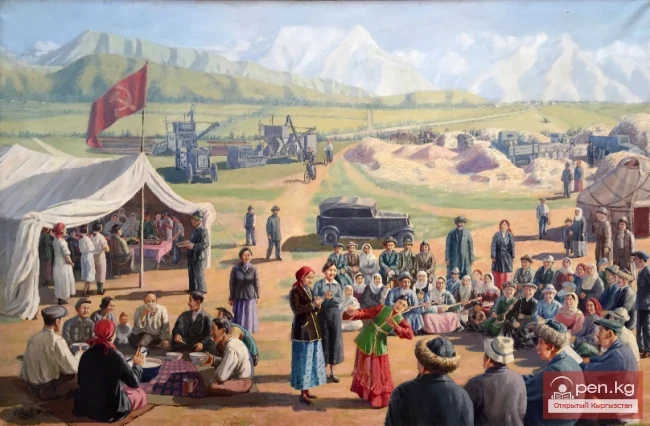
The Accusation of O. Tyanaev in Antiparty Sins at the Second Plenary Session of the Kyarobkom of the VKP(b)
Accusation of Tynaev in Right-Opportunistic Sins After the abolition of the district, at the age...
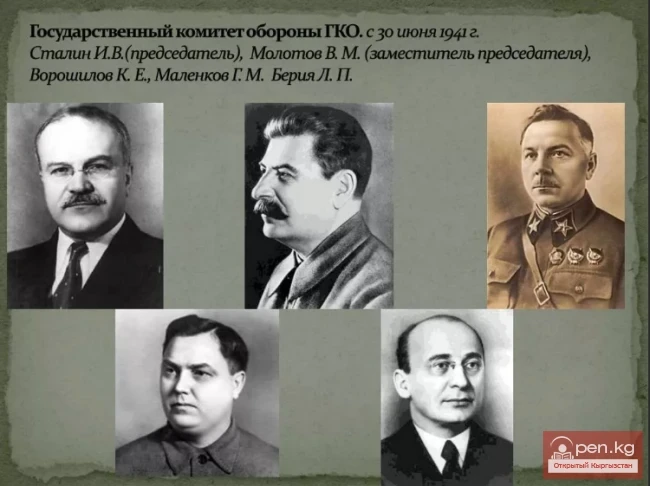
Creation of an Extraordinary Governing Body — State Defense Committee (GKO)
The Work of the Party Organization of Kyrgyzstan on the Front The war that the Soviet people waged...
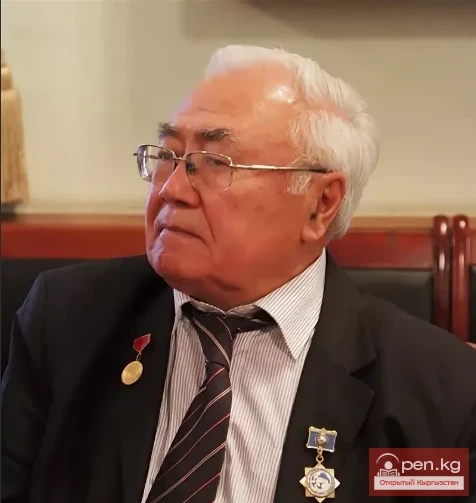
Hero of the Kyrgyz Republic Turdakun Usubalievich Usubaliev
Turdakun Usubaliev - Prominent State and Political Figure Usubaliev was born on November 6, 1919,...
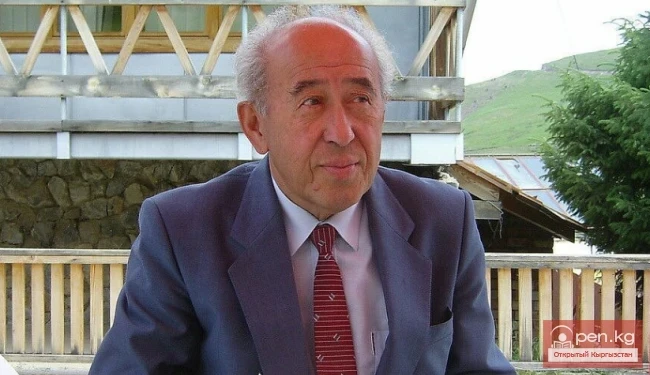
Hero of the Kyrgyz Republic Abasamat Masalievich Masaliev
Abasamat Masalievich Masaliev — Soviet and Kyrgyz party and state figure. Born on April 10, 1933,...
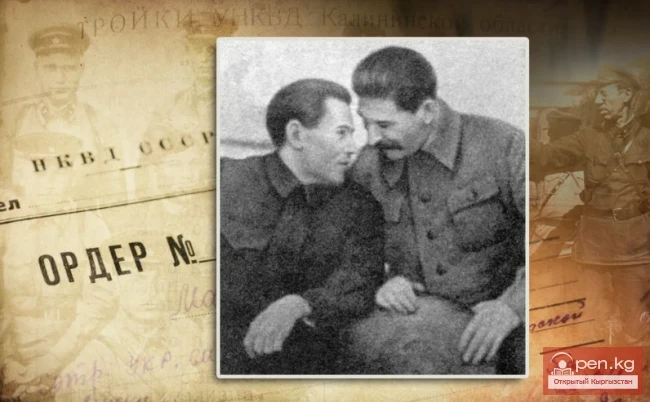
Sentencing of Tokchoro Joldoshev
Dzholdoshev and a number of other comrades were vilified at the V Plenary of the Kirgiz Regional...
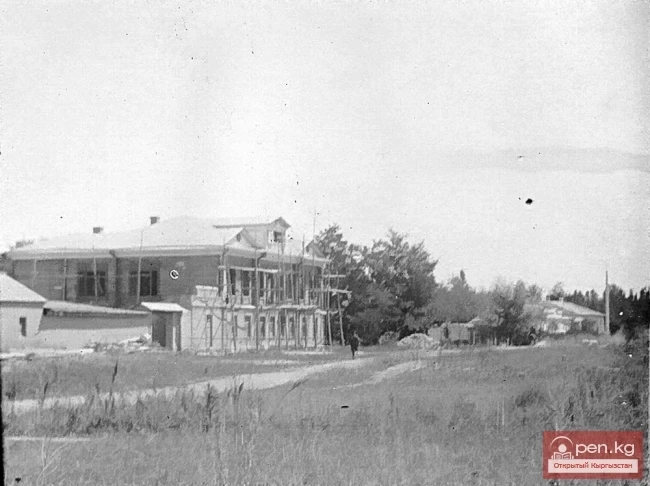
Resolution of the Central Committee of the VKP(b) - into life
The artistic principles of constructivism were built on the basis of formal solutions to a number...
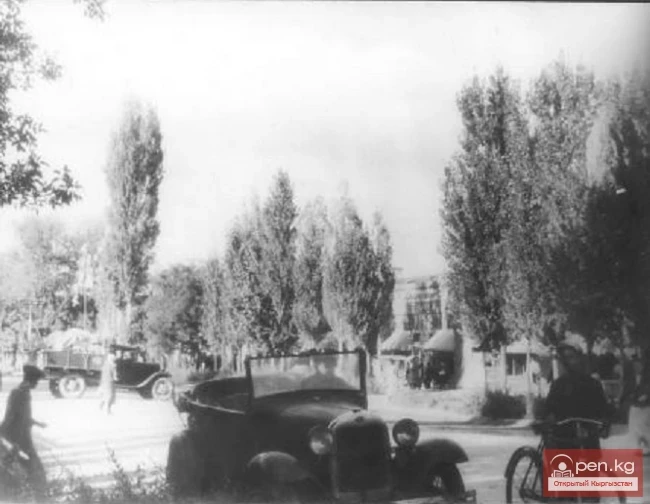
Unanswered Letters of Yu. Abdrakhmanov to Stalin
On the Distortion of the National Policy of the Party in Practical Work The ineffectiveness of the...
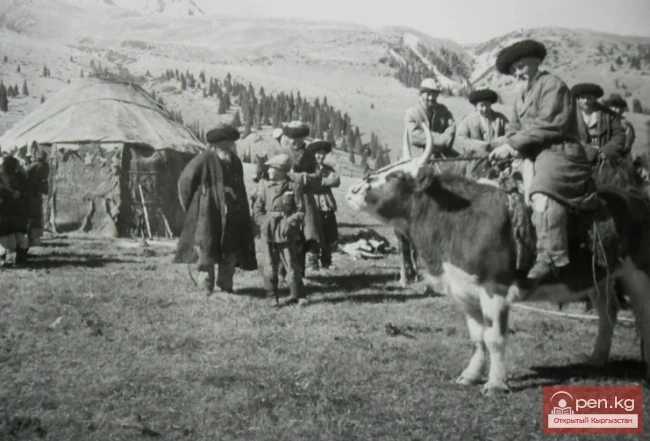
Kyrgyzstan in the 1920s. Introduction. Part 1
Kyrgyzstan in the 1920s. Introduction With the establishment of Soviet power, a political culture...
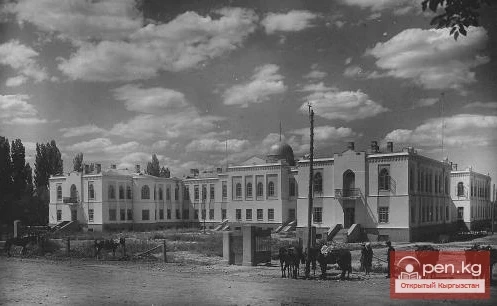
Kyrgyzstan in the 1920s. Introduction. Part - 2
Work on Restoring Historical Truth in Kyrgyzstan A certain shift in the study of our issue began...

Architecture of Soviet Kyrgyzstan
Soviet architects live and work in the first socialist state on the planet, whose powerful...
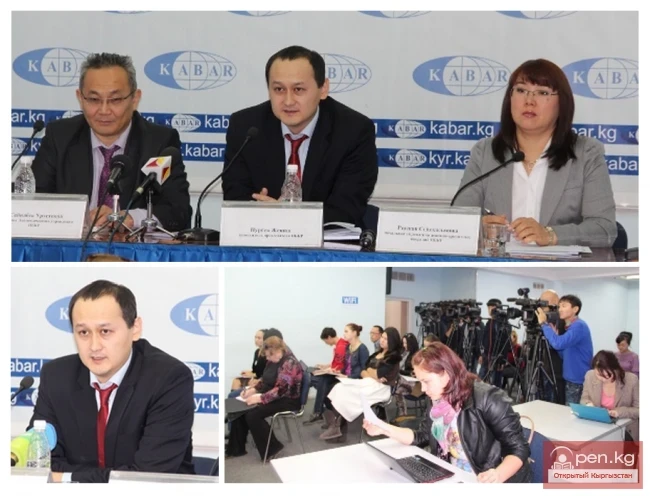
"There is no shortage of dollars in Kyrgyzstan - National Bank"
The National Bank of the Kyrgyz Republic is taking all necessary measures to support the national...
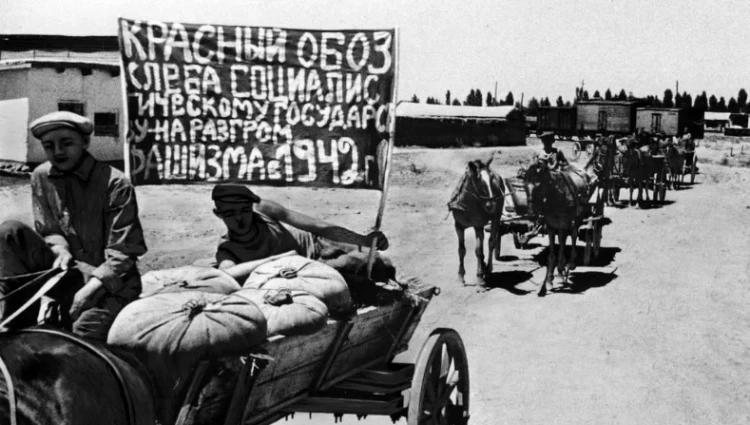
Establishment of Political Departments in State Farms of the Kyrgyz SSR during World War II
The results of 1941 indicate the enormous economic potential of the collective farms and state...
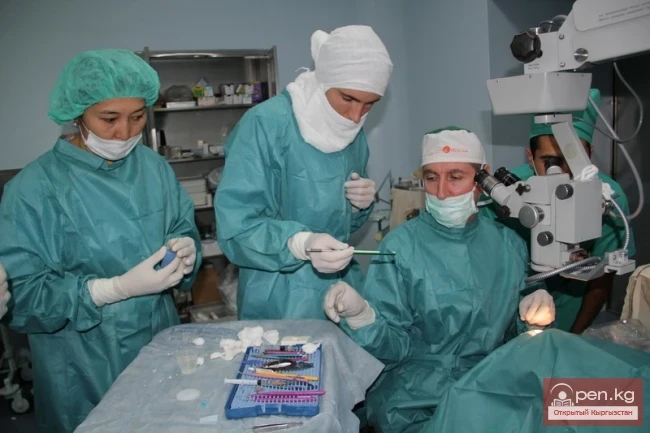
Medical Union of Kyrgyzstan and Israel
Cooperation between the National Hospital of the Ministry of Health of the Kyrgyz Republic and the...
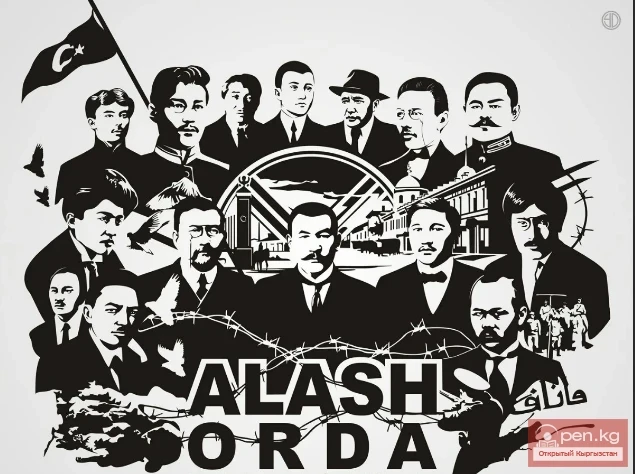
Program of the Alash Party
A. Bukeykhanov, M. Tynyshpayev, Zh. Seydalin, M. Dulatov, and others played a significant role in...

The Press and Radio of Kyrgyzstan in the Post-War Decade (1946-1956)
After the victorious conclusion of the Great Patriotic War, the country faced the enormous task of...
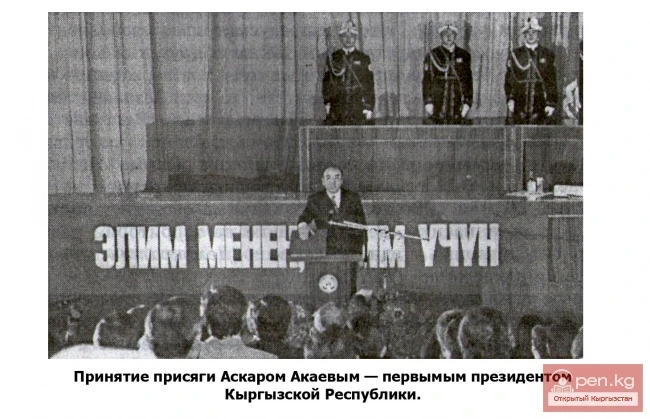
On the Path to Sovereignty and Independence of the Kyrgyz Republic
On the Path to Sovereignty and Independence: The Oath-Taking by Askar Akayev As part of the Soviet...
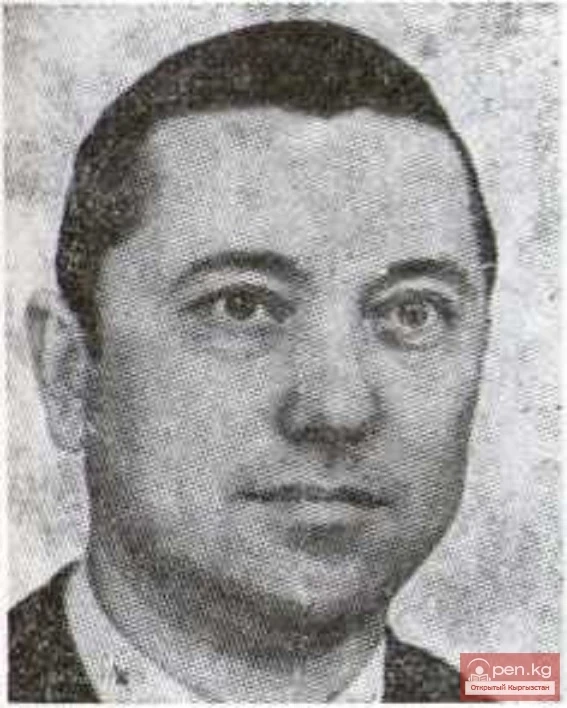
Dramatist and Translator Abdulgafurov Abdugani
Dramatist and translator A. Abdugafurov was born on December 17, 1941, in the city of Osh to a...
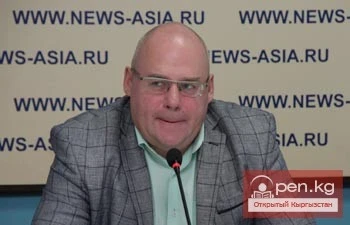
Andrey Rusakov: Elections to the Parliament – Only the Beginning
The results of the parliamentary elections in Kyrgyzstan have been summarized. Six parties have...
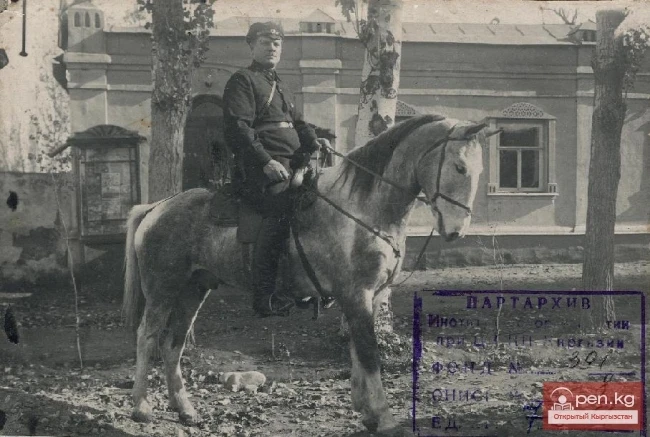
Communist Party, Komsomol, Trade Union of Soviet Kyrgyzstan
Development of Soviet Kyrgyzstan On October 14, 1924, the second session of the All-Russian...
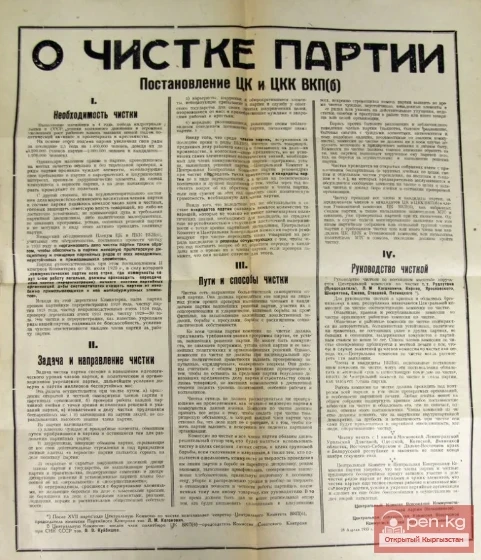
Exclusion from the Party and Arrest of Yu. Abdrakhmanov
Accusations of the Central Control Commission of the VKP(b) Against Abdrakhmanov On October 14,...
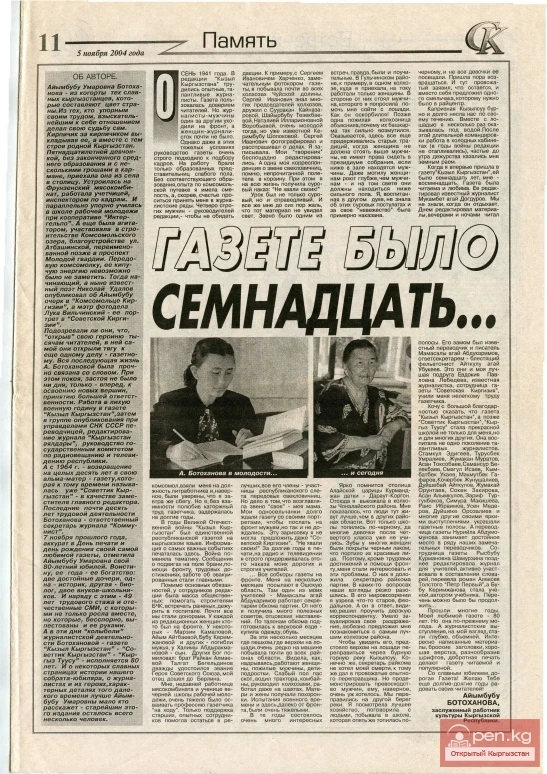
Journalistic Activities of A. Aitbaeva, A. Botokhanova, and Sh. Beishenaliev
Among Kyrgyz women journalists and writers, the most popular name among readers, listeners, and...
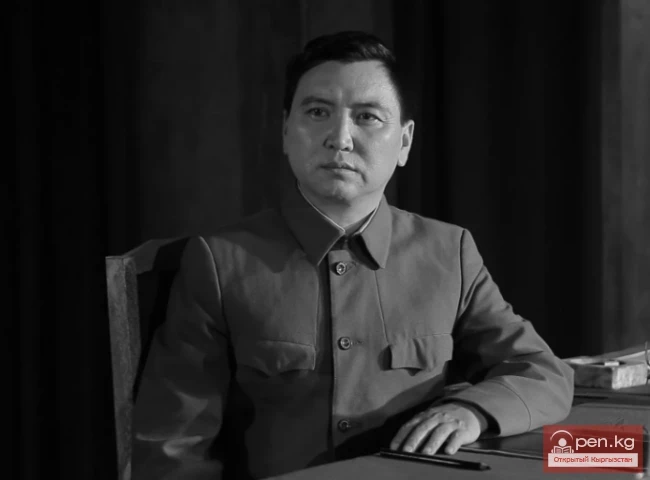
Hero of the Kyrgyz Republic Razakov Iskhak Razakovich
Iskhak Razakov — First Secretary of the Central Committee of the Communist Party of Kyrgyzstan....
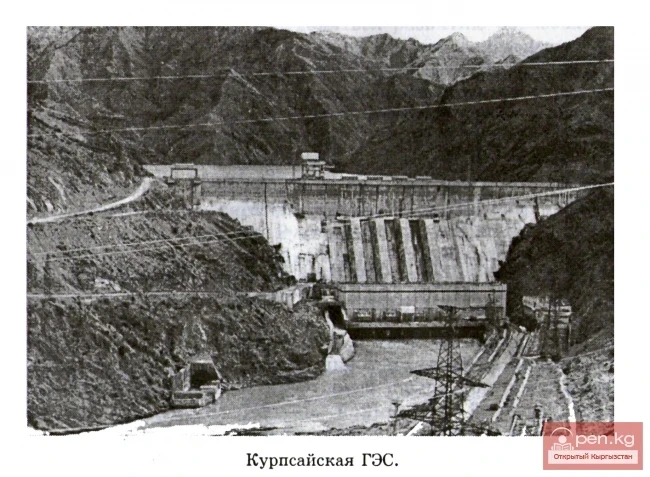
Socialism: Achievements and Drawbacks of Soviet Kyrgyzstan (1964-1985)
Soviet Kyrgyzstan The period when L. Brezhnev was at the head of the state management of the USSR...
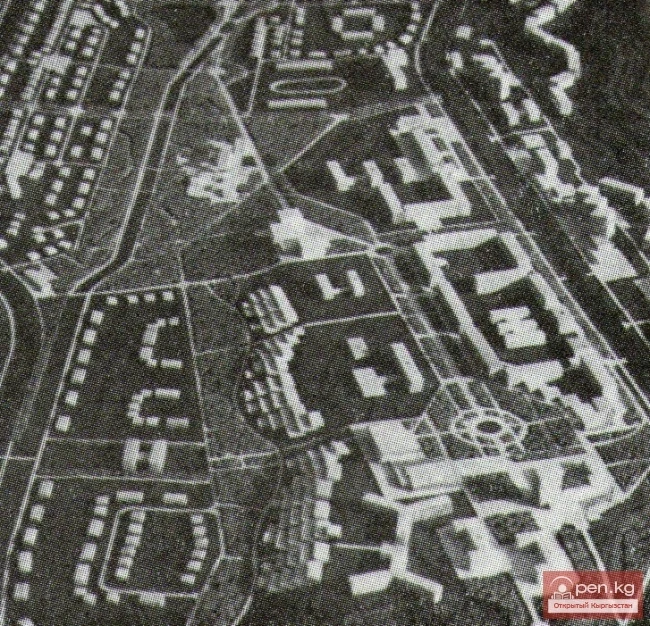
KUDRYAVTSEV Vladimir Evgenievich
KUDRYAVTSEV Vladimir Evgenievich...
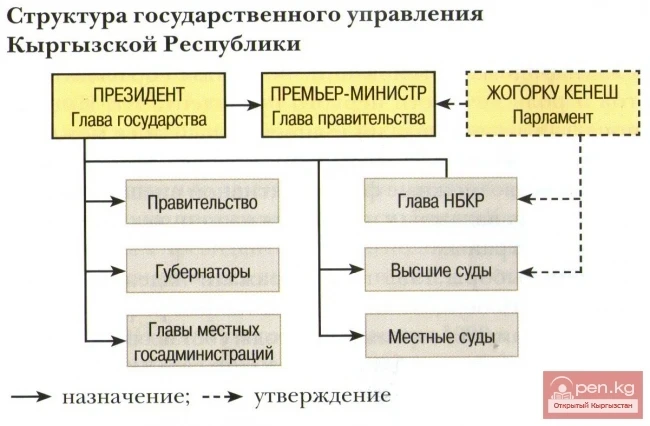
Structure of State Governance of the Kyrgyz Republic
Kyrgyzstan transformed from a part of a federal state (the USSR) into a sovereign, unitary,...
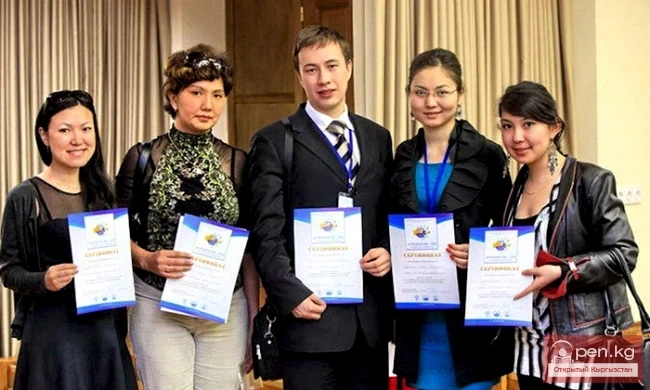
Formation of New Tasks and Strategies for the Future
Licensing and accreditation of higher education institutions. For several years now, a...
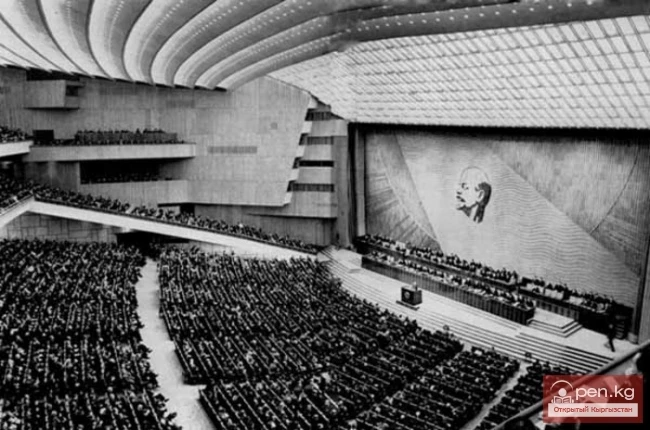
Decisions of the Congresses of the Union of Architects
The second half of the 1950s was filled with activities aimed at restructuring design methods and...
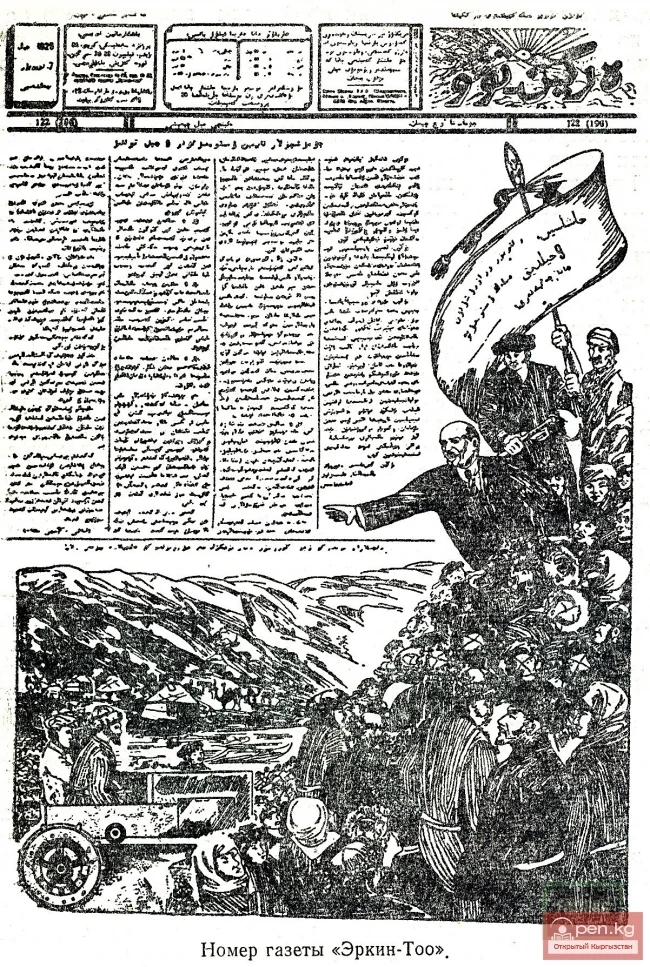
The Birth of the First National Printed Publication in the Mountain Region
With the victory of the October Socialist Revolution of 1917 in Russia and its outskirts,...
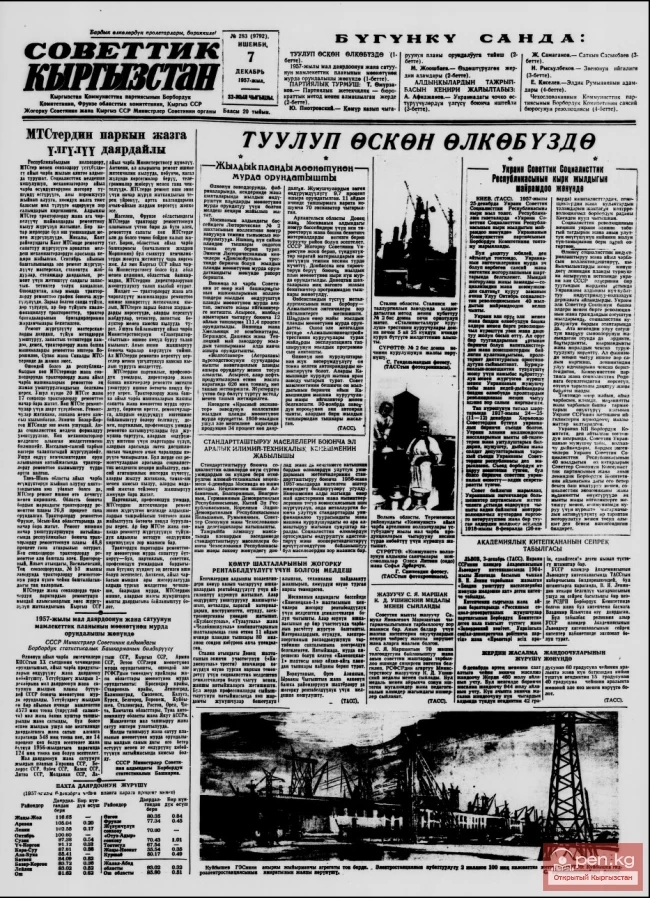
The Journalistic Activities of M. Abdukarimov and S. Sasykbaev
Journalist and writer Mamasaly Abdukarimov (1910-1996) was born in the village of Yapalak, near...
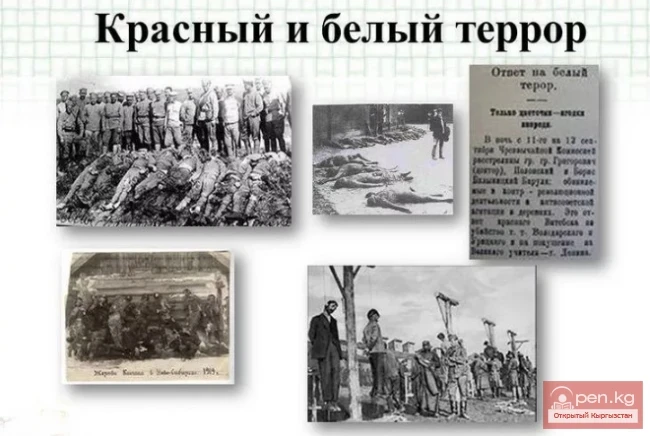
Red Terror Declared in Response to White Terrorism
SPINNING THE FLYWHEEL At the February-March Plenary of the Central Committee of the VKP(b) in...
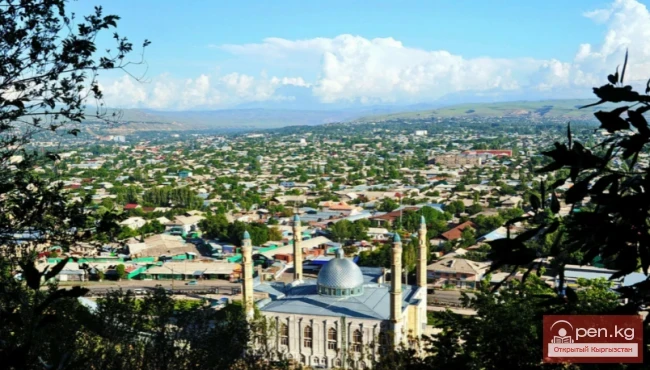
Kyrgyz of the Southern and Northern Regions in the Development of the City of Osh
A city of representatives of more than 80 nationalities During the years of Soviet power, as...
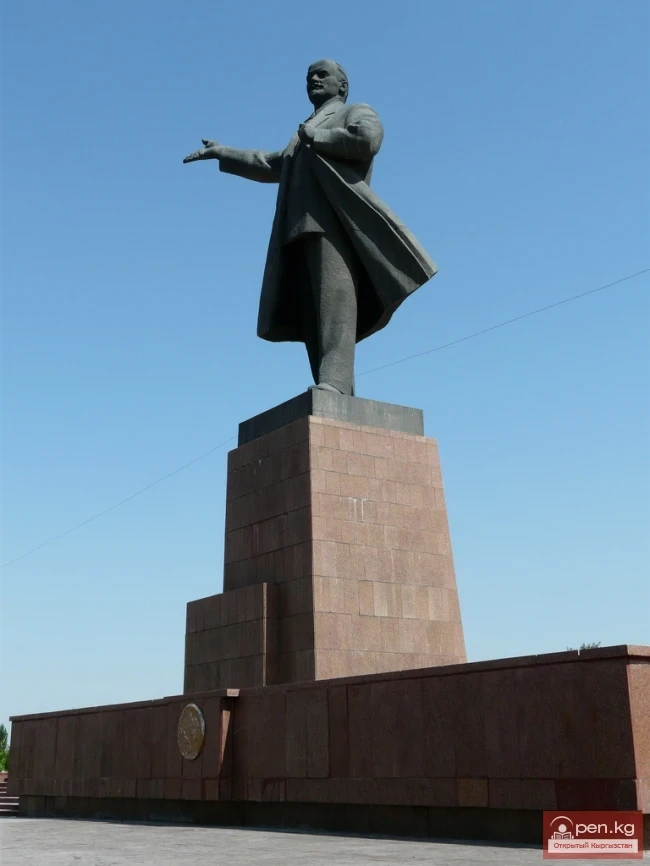
Abdrazak Mokenovich Mokenov
MOKENOV Abdrazak Mokenovich...
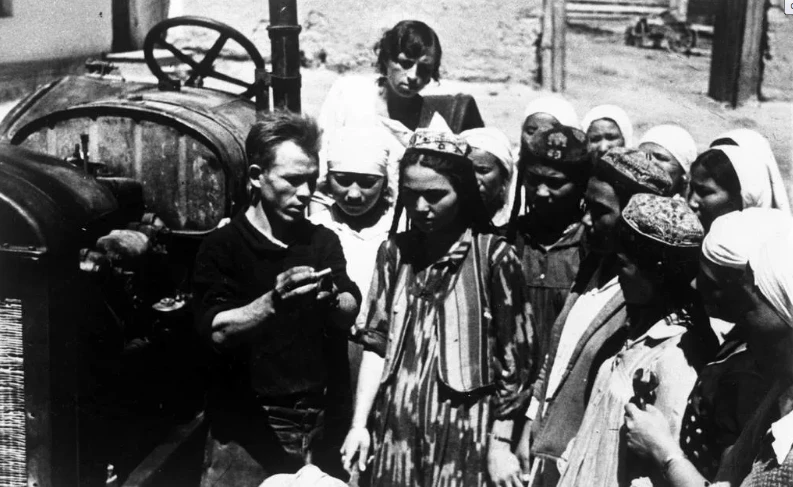
The Work of Political Departments in the Kyrgyz SSR in 1942
In collaboration with the district party committees, relying on the rural activists, the political...

The Batken Crisis of 1999-2000 as an Indicator of the State of Security Potential
The invasion of illegal armed formations of the Islamic Movement of Uzbekistan into the southern...
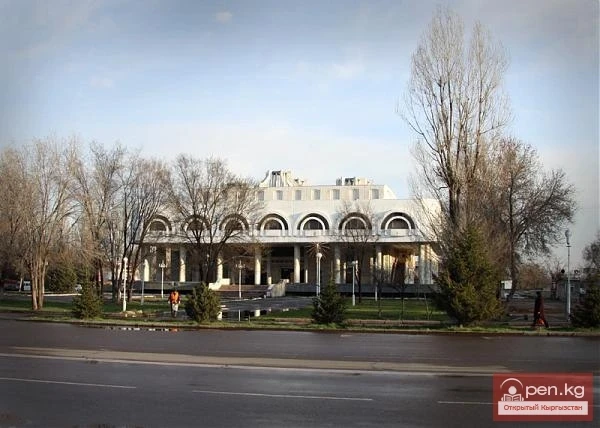
SADYROV Suran Zhurashovich
SADYROV Suran Zhurashovich...
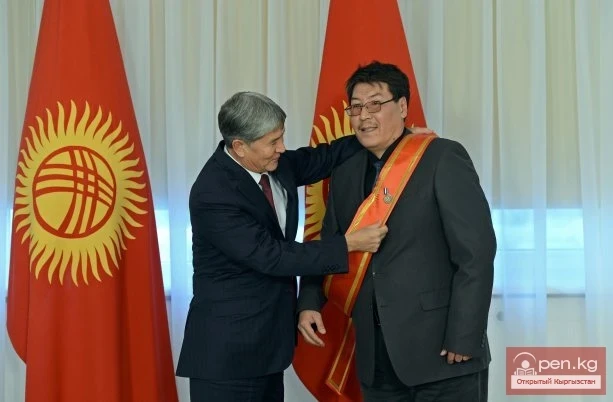
The courage of a journalist is manifested in their struggle for truth, justice, and freedom of speech.
On October 27, 2014, the President of the Kyrgyz Republic, Almazbek Atambaev, met with the...

Republic of Zimbabwe
ZIMBABWE. Republic of Zimbabwe A country in southern Africa. Area - 390.8 thousand km². Capital -...
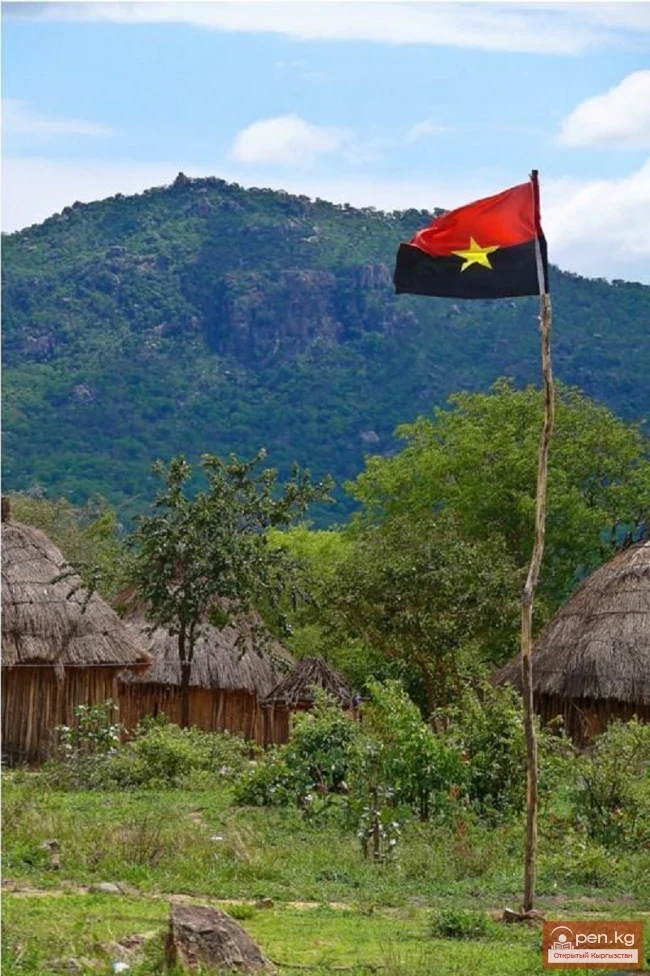
Angola. (Republic of Angola)
Angola. Republic of Angola A country in the southwestern part of Africa, also includes the...
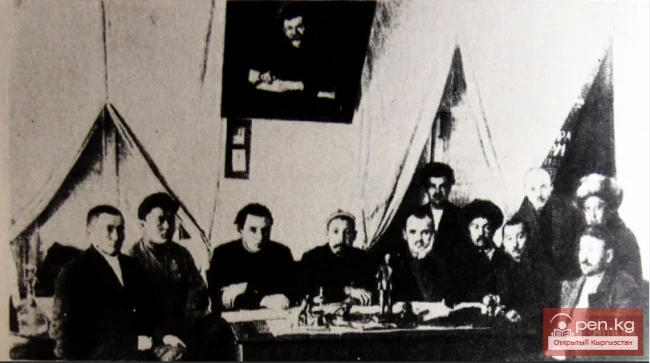
"Theory" of Mass Organization by Yu. Abdrakhmanov
Disagreements between Kamensky and Abdrakhmanov In the early 1920s, Yu. Abdrakhmanov worked as the...
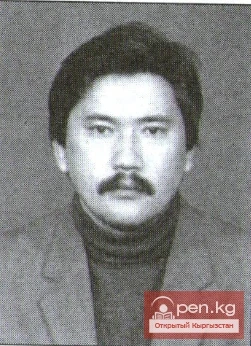
Bolat Karataevich Sartbaev
Sartbaev Bolot Karataevich Designer. Born on May 28, 1955, in the city of Jalal-Abad. In 1976, he...
Residents of Dostuk have begun to relocate to a new residential area. See what kind of houses have been built for them.
In the Batken region, the resettlement of residents whose lands will be transferred to Tajikistan...
